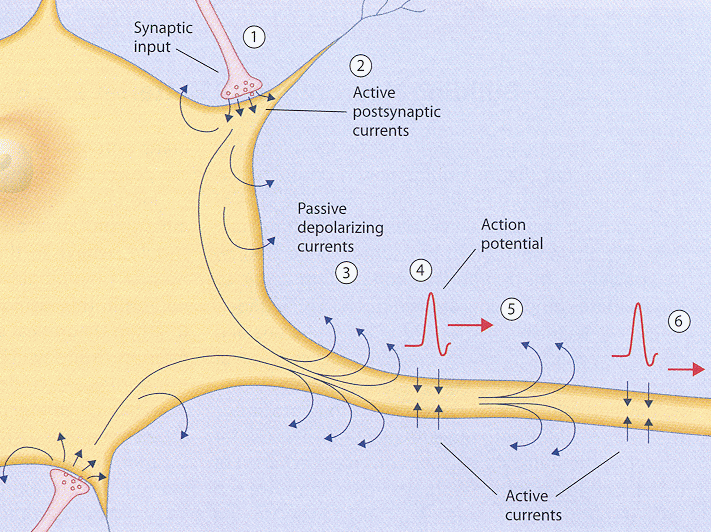


Next: Saltatory Conduction and the
Up: Neural Signaling - Membrane
Previous: Action Potential
The passive current across the membrane caused by a synaptic or receptor
stimulation does not travel far because the depolarization declines with
distance, due to the leakage through the transmembrane ion channels. However,
if this initial depolarization is strong enough to pass the threshold, an
action potential will be triggered (usually initiated at the interface
between the cell body and axon) and the inward Na+ currents produce more
passive currents, which travel down the axon to depolarize new pieces of
membrane to continue the process. The sequentially triggered action potentials
relay the neuronal signal from the synapse or the receptor along the axon to
its terminators, where the signal is passed on to other neurons.

Ruye Wang
1999-09-08

